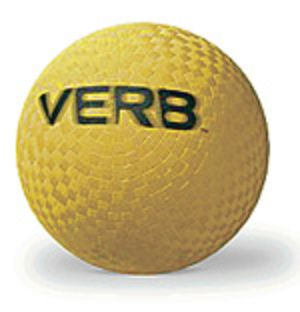
Instructional Materials for
Craig White's Literature Courses
|
Nouns & Verbs
Keys to Strong Writing |
 |
Overview: When students first pay attention to quality writing and literature, their first reaction is often that such writing is "flowery"—wordy, showy, puffed-up, long-winded. When students imitate such writing in order to impress their teachers or others, they frequently do so by adding lots of adjectives and adverbs. If those words have plenty of syllables, maybe their writing sounds even smarter!
For those who regard educated speech and writing as a strange and threatening language, such a response may make sense, but such imitations rarely come out sounding right.
In fact, academic or educated writing may sound strange or hard to process because its author has reworked its language to deliver as much information as possible, as clearly as possible, in as short a space or time as possible. Sometimes the "flowery" response results less from effusive language than from unfamiliar words appropriate to specialized studies or attempts at new forms of expression.
But the point is that for academic writing as for any writing, adjectives and adverbs (commonly grouped as modifiers) are not the measure or standard of quality. Instead, strong nouns and verbs dominate the best writing.
![]()
How to Write with Strong Nouns & Verbs
As in all serious writing, draft freely so your ideas begin to take form on the page, but then revise the form of those ideas to grow quicker and sharper.
Remove Adjectives and Adverbs
Replace an adverb and a verb with a better verb by itself.
"The man ran quickly" > "the man sprinted" or "the man dashed."
"She said loudly" > "she shouted" or "she called."
Take the same approach with adjectives:
"A terrible, oppressive leader" > "a tyrant."
"A strong, fit person" > "an athlete."
" A mean, intimidating person" > "a bully."
Often adjectives and adverbs are a clumsy replacement for a well-chosen noun or verb. Some words are so bland and vague that they tell the reader almost nothing.
Be Specific
A specific word tells us more than a generic word.
A dog could be a collie, a terrier, or a mutt.
If a woman walks, does she stroll, wander, or march?
"A grandmother marching along with her collie" is much more vivid than "a woman walking along with her dog."
Forms of the verb "to go" are natural on-the-spot descriptors of action, but almost any other verb will tell your reader more about what happened.
"I went to the store." > "I drove to the store" or "I walked to the store." is better.
If you must use adjectives or adverbs, use good ones. Words like "good" and "bad," "wonderful" and "terrible," are so vague that they are almost meaningless. Ask yourself, "How is it good or bad? What was so wonderful or terrible?" Forcing yourself to answer will lead to stronger, more specific words.
"That painting is marvelous." > "Sweeping masses of bold color make the picture come alive,"
The "vivid" examples below the "bland" because they are specific and dramatic, creating an image in the reader's mind.
![]() Bland - The house was on fire.
Bland - The house was on fire.
![]() Vivid - Flames erupted from the windows.
Vivid - Flames erupted from the windows.
![]() Bland - Goliath was taller than David.
Bland - Goliath was taller than David.
![]() Vivid - The giant towered over David.
Vivid - The giant towered over David.
Use a figure of speech
like a
metaphor or simile instead of an adjective in order to create an image in your
reader's mind,
The boy liked
swimming very much. > The boy was a fish, only leaving the water to
sleep. (metaphor)
The boy was like
a fish, only jumping out of the water for a second or two at a time. (simile)
Avoid the expletive sentence structure ("there is," “it was”)
“It was raining hard.” > “Rain pelted the roof.”
Avoid or improve "to be" or linking verbs
The least dynamic verbs in the English language are forms of "to be"—is, are, was, were, am. Those are "linking verbs" or "copulas" as opposed to action verbs. Try to replace "to be" verbs with more dynamic action verbs, which may involve restructuring the sentence.
Examples:
There are fifteen robberies daily. > Fifteen robberies occur daily.
Polly Anderson is the new Miss Teen USA. > Crowned yesterday, Polly Anderson began her reign as the new Miss Teen USA.
sources: http://www.whitesmoke.com/using-strong-verbs-and-nouns, http://tomaar.wrytestuff.com/swa506611.htm, http://www.livewritethrive.com/2012/07/06/strong-nouns-and-verbs/, http://www.smalladdictions.com/Skateboard/articles/NFW-017.htm, http://www.lynnplourde.com/index.php/blog/40-strong-nouns-strong-verbs
